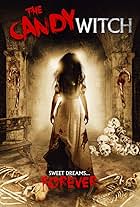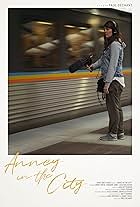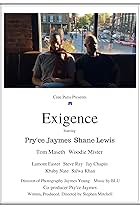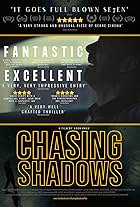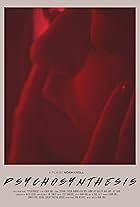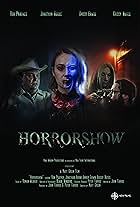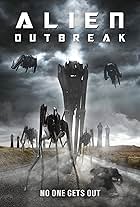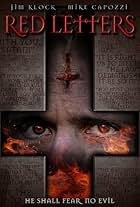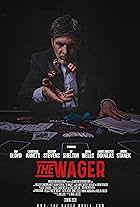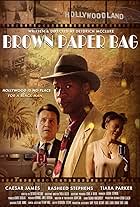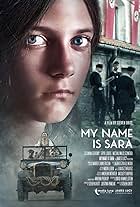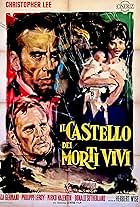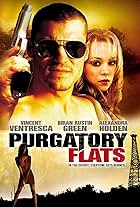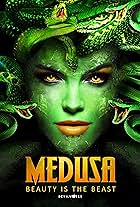Otoboke
Joined Jan 2005
Welcome to the new profile
We're still working on updating some profile features. To see the badges, ratings breakdowns, and polls for this profile, please go to the previous version.
Ratings1.5K
Otoboke's rating
Reviews265
Otoboke's rating
It's hard to believe that Orson's monologue at the end of Compulsion only really lasts 10 minutes. It seems never-ending and almost timeless. Not because it's dry, dull and monotonous. Rather because it seems to span lifetimes, eras and serves a summary of all human wisdom, intellect, experience and emotion thus far written into the tome of humanity's brief foray into civilization, law and order, and governance. I could talk about the remainder of the feature with just as much detail, but I'll forgo such a temptation. Such would a God were he questioned about our solar system. It's a damn fine work of art, but here's the crown jewel. A shining achievement amidst a multitude of wonder. In all its conflicted, convoluted, and highly illogical beauty. For yes, there is such a thing in evil. You just need to know where to look.
I feel that Fields works best here when he's engaged in the comedy de la domestic, specifically during the movie's opening 15 minutes where's caught between "burglars singing in the cellar" and his incessantly nagging wife played by a very convincing Kathleen Howard howling in the bedroom. Fantastic, hilarious stuff. The remainder of the film is more hit and miss. There are two collisions, one with a bicycle and the other with a large man. The misses are his secretary played by Fields' real-life mistress Carlotta Monti, and his daughter played by the ever alluring and sweet Mary Brian. But enough about that, who's for some applejack?
The Ernst Lubitsch "touch" as it would later be known, was altogether little-known back in 1919 and for the curious looking back into the director's repertoire, Madame DuBarry is often seen a historical curiosity rather than a signpost to later greatness. It is my opinion however that this widely-regarded stance on Lubitsch's first major motion picture has just as much to do with the quality of prints available as it does with the feature's tendency to lean on drama more than comedy. Having recently viewed Eureka's newly- released blu-ray featuring a crisp new print backed up by a dynamic score by William Axt, it's clear that although "the touch" is notably lighter (or darker) than Lubitsch would employ in his films later on in his long career, there remain many scenes during the film's first hour where the director plays with his characters and plot in a manner which explicitly seek to extract laughs rather than varying degrees of pathos.
Writers Norbert Falk and Hanns Kraly tell the infamous story of Jeanne Becu, her rise to power's easily-swayed side, and in the end her ultimate fate at the hands of the Reign of Terror. Although they play loose and casually with the real events that the film is based upon, the writers do well in keeping key points together whilst telling a compelling character drama. Historians may well cry humbug, but the story is gripping, amusing and enlightening in spite of its inaccuracies. Lubitsch himself directs the script's calling for epic moments of drama well, though instils just enough humour and light-heartedness to break it up so as to not become overbearing. Lead star Pola Negri establishes herself in a seminal role here, and often makes a lot out of very little. Also of note is Emil Jannings as King Louis XV, Harry Liedtke as Armand De Foix and Reinhold Schünzel as Minister Choiseul who make scenes devoid of Negri as compelling as possible, even though the ham can get a little chewy at times.
This was my first time viewing Madame DuBarry so have no real reference point to other prints of the film other than having history with other silent-era movies with some terrible public- domain versions which never really do the films any justice and at times render them incomprehensible. It's for this reason that I thoroughly recommend viewing the film on Eureka's blu-ray if you have a means to do so. Not just because the image quality is outstanding, but also largely in part for Axt's score which complements the on-screen action superbly. It might not be as light and airy as Lubitsch fans would hope for going this far back, but there's still plenty here to enjoy and strikes a nice balance between lush historical-costume drama and darkly- amusing character piece.
Writers Norbert Falk and Hanns Kraly tell the infamous story of Jeanne Becu, her rise to power's easily-swayed side, and in the end her ultimate fate at the hands of the Reign of Terror. Although they play loose and casually with the real events that the film is based upon, the writers do well in keeping key points together whilst telling a compelling character drama. Historians may well cry humbug, but the story is gripping, amusing and enlightening in spite of its inaccuracies. Lubitsch himself directs the script's calling for epic moments of drama well, though instils just enough humour and light-heartedness to break it up so as to not become overbearing. Lead star Pola Negri establishes herself in a seminal role here, and often makes a lot out of very little. Also of note is Emil Jannings as King Louis XV, Harry Liedtke as Armand De Foix and Reinhold Schünzel as Minister Choiseul who make scenes devoid of Negri as compelling as possible, even though the ham can get a little chewy at times.
This was my first time viewing Madame DuBarry so have no real reference point to other prints of the film other than having history with other silent-era movies with some terrible public- domain versions which never really do the films any justice and at times render them incomprehensible. It's for this reason that I thoroughly recommend viewing the film on Eureka's blu-ray if you have a means to do so. Not just because the image quality is outstanding, but also largely in part for Axt's score which complements the on-screen action superbly. It might not be as light and airy as Lubitsch fans would hope for going this far back, but there's still plenty here to enjoy and strikes a nice balance between lush historical-costume drama and darkly- amusing character piece.


